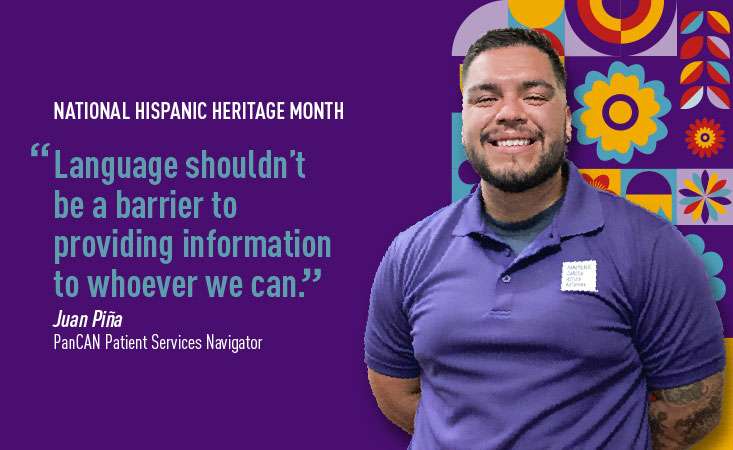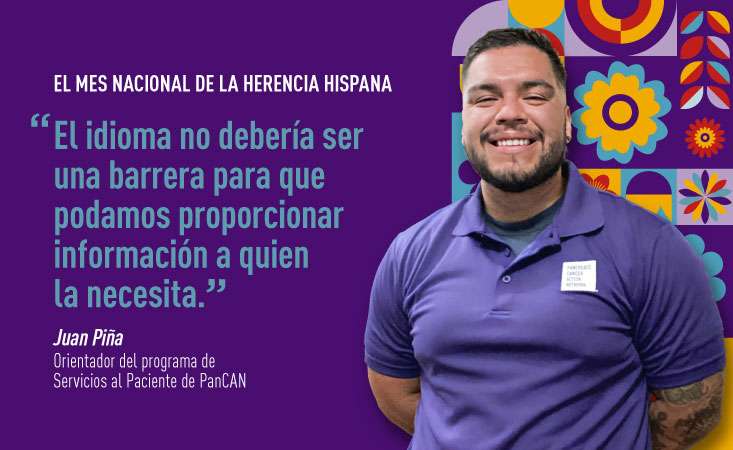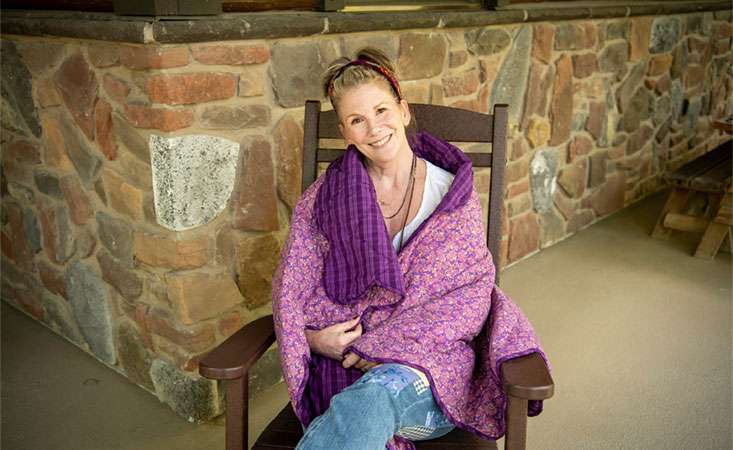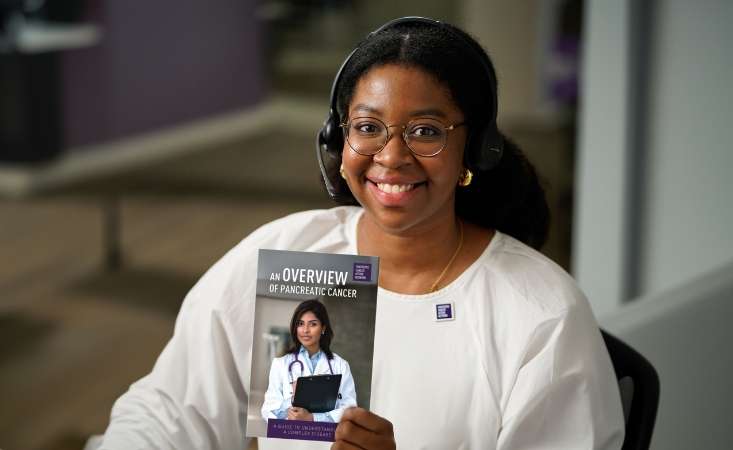
Adrian Sorrell was diagnosed with pancreatic cancer in 2018.
Editor’s note: Sadly, Adrian Sorrell passed away in June 2020. We are grateful he allowed his story to be shared.
For Adrian Sorrell, Father’s Day 2018 started out as a fun family celebration – visiting with the grandkids, eating brunch and embarking on a road trip to Galveston, Texas. But during that drive, the day took a sharp turn.
Sorrell began feeling intense pain in his abdomen and back.
Over the next two months, other symptoms – weight loss, itching, jaundice – followed.
His physician sent him to get a colonoscopy. The doctor performing that procedure quickly realized that his symptoms aligned with something that wouldn’t be found through a colonoscopy – pancreatic cancer.
An MRI confirmed that suspicion.
Sorrell’s healthcare team sprang into action, working with him to develop a treatment plan.
It began with several courses of aggressive chemotherapy. The original hope was to shrink the tumor enough to remove it surgically, but they quickly learned that wouldn’t be an option.
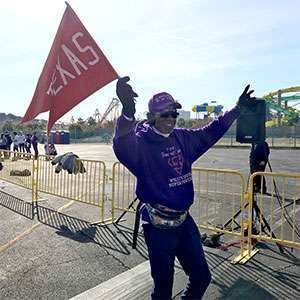
Sorrell finds it uplifting to be with other survivors at PurpleStride, the walk to end pancreatic cancer.
Sorrell continued with standard chemotherapy options. When one wasn’t working, his team moved onto another. There was a period over the summer when his scans were clean, but soon the cancer returned.
The pain he experienced early on continued to be unbearable. He had a biliary stent placed and received strong medication to help with this. But he couldn’t do very much when on the pain medicine, and he landed in the hospital multiple times when the stent became infected.
He also kept losing weight.
His healthcare team felt the best course of action would be a clinical trial.
Pancreatic cancer patients who participate in clinical research have better outcomes, and every treatment available today was approved through a clinical trial. The Pancreatic Cancer Action Network (PanCAN) strongly recommends clinical trials at diagnosis and during every treatment decision.
Despite comprising 13% of the U.S. population, Black Americans make up only 3% of cancer clinical trial participants. When clinical trials lack racial and ethnic diversity, trial results may not apply to all types of patients.
Sorrell’s oncologist reached out to other healthcare professionals locally to help find options.
Though his liver enzyme numbers caused some challenges enrolling in a trial at first, Sorrell was able to join a phase I clinical trial near his home in San Antonio, Texas.
Participation involved a full, long day at the clinic on visit days. Though he only directly received the investigational treatment for about an hour, he had to stay for another six hours or more so the team could monitor him and ensure his safety – a priority in all clinical trials.
Once he started the trial, he didn’t need any pain medication, and he wasn’t losing any more weight. His quality of life was better than when on standard chemotherapy. Unfortunately, those symptoms have begun again recently.
But scans in December showed the tumors weren’t growing.
Sorrell has completed the planned clinical trial treatment and is awaiting results of his latest scans to determine next steps – likely either continuing on this investigational drug or enrolling in a different clinical trial.
“I plan to keep doing clinical trials until I can’t anymore or until they find something else that works better.”
Sorrell feels lucky to have found a healthcare team near home that is proactive and knowledgeable. “They give me the information I need, and they problem solve. When one treatment isn’t working, they are really good about finding something else you can get into.”
He also found a lot of support through participating in his local PanCAN PurpleStride events. He’s attended the walk to end pancreatic cancer twice since his diagnosis – once in San Antonio and once in Austin.
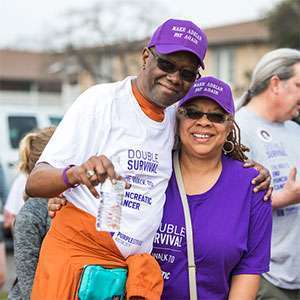
Sorrell and his wife, his “rock,” sported “Make Adrian Fat Again” hats at PurpleStride Austin.
“That first PurpleStride in Austin really lifted my spirits – going there and meeting these people who had survived. Of course, it’s also humbling to see all the people who have lost loved ones. But overall, I find PurpleStride to be very beneficial and uplifting.”
Find your local PurpleStride event and register today. PanCAN has turned its in-person March, April and May PurpleStride walks/runs into virtual PurpleStride events due to concerns over COVID-19. That means you can register for free as a virtual participant and still fundraise for PanCAN, from home. Every dollar raised ensures PanCAN Patient Services can be there for patients like Sorrell.
Sorrell has been open with his friends and family about his journey. He sometimes thinks he shares too much, but his loved ones think otherwise. They like knowing how he’s doing, what he’s doing. And in turn, they’ve been a great source of support for him as well.
Donning “Make Adrian Fat Again” hats with his family and friends, Sorrell brings humor to his very serious challenges.
Overall, he tries to enjoy life as much as possible. “I try to keep a positive attitude and enjoy each day that I get.”
Two of his grandchildren graduate from high school this May. He is looking forward to celebrating that milestone with them.
Any treatments, including clinical trials, mentioned in this story may not be appropriate or available for all patients. Doctors take many things into account when prescribing treatments including the stage and type of cancer and the overall health of the patient.







